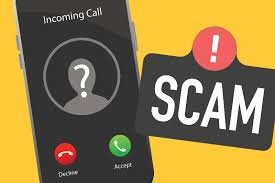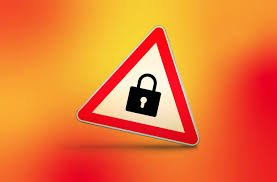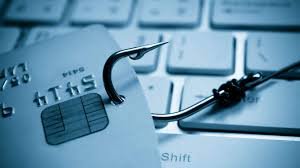Introduction
In our increasingly digital world, phone scams have become a pervasive threat, undermining our personal and financial security. One number that has recently raised significant concern is 775-298-8035. With numerous reports suggesting that 775-298-8035 is linked to various scams, it’s essential to understand the nature of these fraudulent activities and learn how to protect yourself. This guide will explore common scams associated with 775-298-8035 and provide practical tips to help you stay safe.
Key Takeaways
- Identify Common Scams:
Calls from 775-298-8035 may involve phishing attempts or fake debt collection schemes, aiming to steal personal information or coerce payment.
- Spot Red Flags:
Watch out for unsolicited requests for sensitive information, a sense of urgency, threats, or pressure to make immediate payments, as these are common indicators of scams.
- Verify Caller Identity:
Always verify the identity of the caller by hanging up and contacting the organization directly using official contact information.
- Utilize Technology:
Use call-blocking apps and call screening services to help filter out scam calls and protect your personal information.
- Report Suspicious Activity:
Report any suspicious calls from 775-298-8035 to relevant authorities, such as the FTC, to help combat and prevent phone scams.
Understanding Scams Linked to 775-298-8035

Scams associated with 775-298-8035 often involve deceptive tactics designed to exploit unsuspecting individuals. Two of the most prevalent scams linked to this number are phishing and fake debt collection schemes. Understanding these scams is crucial for safeguarding your personal and financial information.
1. Phishing Scams
Phishing is a deceptive technique used by scammers to obtain sensitive information such as Social Security numbers, bank account details, or credit card information. Calls from 775-298-8035 may involve scammers posing as representatives from legitimate institutions, such as banks or government agencies. They may claim to need verification of your personal details or threaten consequences if you don’t comply.
Common Signs of Phishing Scams:
- Unsolicited Requests:
You receive an unexpected call asking for sensitive information.
- Urgency:
The caller creates a sense of urgency, pressuring you to act quickly.
- Threats:
You are threatened with legal action or account suspension if you don’t provide the requested details.
2. Fake Debt Collection
Another common scam linked to 775-298-8035 is fake debt collection. Scammers use this tactic to convince victims that they owe money to a non-existent debt collector. They may demand immediate payment and use aggressive tactics to intimidate their targets.
Common Signs of Fake Debt Collection:
- Aggressive Behavior:
The caller is overly aggressive or threatening.
- Unverifiable Debt:
You do not recognize the debt or the debt collector’s name.
- Pressure to Pay Immediately:
The caller insists on immediate payment, often using unusual methods.
Practical Tips to Protect Yourself

Protecting yourself from scams like those associated with 775-298-8035 requires vigilance and a few proactive steps. Here’s how you can safeguard your personal and financial information:
1. Verify Caller Identity
Always verify the identity of anyone who contacts you requesting personal information. Hang up and call back using a known and verified number if you have any doubts. For example, if someone claims to be from your bank, use the official customer service number found on your bank statements or website.
2. Avoid Sharing Personal Information
Never share sensitive personal or financial information over the phone unless you are absolutely certain of the caller’s legitimacy. Scammers often use sophisticated tactics to sound convincing, so it’s important to remain cautious.
3. Recognize Red Flags
Be aware of common red flags that indicate a potential scam:
- Unsolicited Calls:
You receive an unexpected call asking for personal details.
- Sense of Urgency:
The caller pressures you to act quickly or threatens negative consequences.
- Unusual Payment Methods:
The caller requests payment through unconventional or untraceable methods.
4. Use Technology Wisely
Leverage technology to protect yourself from phone scams:
- Call-Blocking Apps:
Use apps designed to block known scam numbers and filter out unwanted calls.
- Call Screening Services:
Subscribe to services that screen incoming calls and identify potential scams.
5. Report Suspicious Activity
If you receive a suspicious call from 775-298-8035, report it to relevant authorities, such as the Federal Trade Commission (FTC) or your local consumer protection agency. Reporting helps track and combat fraudulent activities and protects others from falling victim to similar scams.
How can you protect your personal information
To protect your personal information, never disclose details like Social Security numbers, bank account information, or passwords over the phone unless you are certain of the caller’s identity. If you suspect a call is a scam, hang up immediately and contact the company or institution directly using a verified phone number. Additionally, monitor your financial accounts for unusual activity and consider placing a fraud alert on your credit report to prevent identity theft.
Specific signs that indicate a call from 775-298-8035 is a phishing attempt

Signs of a phishing attempt include requests for sensitive information like account numbers or passwords, claims that your account is compromised and needs urgent verification, or offers that seem too good to be true. Scammers often use high-pressure tactics, creating a sense of urgency to prompt immediate action. Be cautious of any unsolicited requests for personal details and always verify the caller’s legitimacy through official channels before responding.
Steps should be taken if you realize you’ve been scammed by 775-298-8035
If you realize you’ve been scammed, act quickly. Contact your bank or credit card company to report any unauthorized transactions and secure your accounts. Notify local law enforcement and file a report with the Federal Trade Commission (FTC). Additionally, consider placing a fraud alert on your credit reports with major credit bureaus to prevent further identity theft. Document all interactions with the scammer for reference and follow up with relevant agencies to mitigate potential damage.
Conclusion
Unmasking the truth behind 775-298-8035 reveals a range of scams designed to exploit and deceive. From phishing schemes to fake debt collection, the tactics used by scammers are varied and often sophisticated. By staying informed and following the practical tips outlined in this guide, you can protect yourself from these fraudulent activities. Remember, vigilance and proactive measures are key to safeguarding your personal and financial information. If you encounter a suspicious call from 775-298-8035, take immediate action to verify the caller’s identity, avoid sharing personal details, and report the incident. Your safety and peace of mind depend on it.
FAQs
1.What are the common scams associated with 775-298-8035?
Common scams linked to 775-298-8035 include phishing attempts where scammers try to obtain personal information and fake debt collection schemes where callers demand payment for non-existent debts.
2.How can I recognize if a call from 775-298-8035 is a scam?
Look for signs such as unsolicited requests for sensitive information, an urgent or threatening tone, and demands for immediate payment. These are often indicators of fraudulent activity.
3.What should I do if I receive a call from 775-298-8035?
Do not share any personal or financial information. Hang up and verify the caller’s identity through official channels. Consider blocking the number and reporting the call to relevant authorities.
4.How can technology help me avoid scams from numbers like 775-298-8035?
Technology can aid in scam prevention by using call-blocking apps to filter out known scam numbers and subscribing to services that screen calls for potential fraud.
5.Where can I report suspicious calls from 775-298-8035?
You can report suspicious calls to the Federal Trade Commission (FTC), your local consumer protection agency, or online platforms dedicated to tracking and addressing scam activities.
